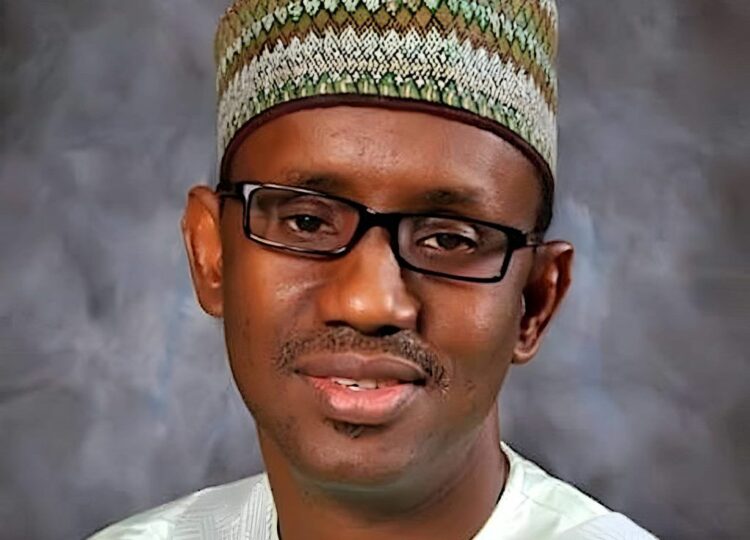The National Security Adviser (NSA), Nuhu Ribadu, has lauded the Armed Forces of Nigeria over the sustained successes being recorded in the ongoing fight against insecurity across the country.
Ribadu gave the commendation on Monday in Abuja at the Chief of Defence Intelligence Annual Conference 2023 with the theme: ‘Leveraging Defence Diplomacy and Effective Regional Collaboration for Enhanced National Security’.
He said the armed forces under the current leadership had shown serious commitment to addressing the prevailing security challenges bedevilling the country, adding that there were positive changes and improvements both in and outside Nigeria.
“Let us come together as one and continue to support our armed forces and other security agencies with this work of securing our country for peace and stability.
“They have done an amazingly good job without talking and I believe that with the support and the resolve of the leadership that we have today in our country, things will only be better.
“We are just four or five months old, but certainly things have changed and we believe that what they are doing, they are doing it right.
“We want to encourage them, stand by them and support them 100 per cent and hopefully this country will be okay in a short period of time,” he said.
The NSA said the renewed synergy among services had led to the recent successes being recorded in dealing with the threats they had become increasingly asymmetric and the activities of armed non-state actors remaining prevalent in the West African sub-regions.
Ribadu said the essence of defence diplomacy was to pursue strategic engagement with allies and partners at bilateral and multilateral levels while ensuring the attainment of national security objectives.
He said that the improved security in the Niger Delta region had led to an increase in oil production from 900,000 barrels per day about a year ago, to about 1.7 million barrels per day currently.
The NSA added that attacks on oil installations have also reduced drastically in recent times due to the commitment of the military, while insurgency-related deaths have also reduced in the North East and North West.
He said that hundreds of kidnapped hostages had also been rescued from the terrorists in different theatres of operation across the country.
In his remarks, the Minister of Defence, Alhaji Muhammed Badaru, urged the Nigerian Defence Attachés and Advisers deployed in different countries to leverage on collaboration to proffer solutions to some of the nation’s security challenges.
Badaru said that for any country’s defence strategy to succeed, it must recognise the critical role of diplomacy in reducing military mix as well as possible and shared understanding for enhanced national security.
The minister urged Nigeria’s defence advisers and attaches to aim towards providing a sustainable solution through defence diplomacy and code on better information sharing system.
He urged them to respect the principle of certainty to quality and long interference in the internal affairs of other nations.
“You must emphasize cooperation rather than competition, acts within the confines of the law and always advocate for international peace and security, honouring equality, mutual respect, peaceful coexistence, and manage differences.
“It is through peace that regional collaboration can be realised for enhanced national security.
The defence advisor and attaches have continued to play the indispensable role of acting as a protector in Nigeria, facilitate joint training and exercise where lessons can be learnt and best practices adopted and hopeful stable relationship to ensure peace and strategy,” he said.
The Chief of Defence Intelligence (CDI), Maj.-Gen. Emmanuel Undiandeye, said the agency was more intentional and determined in its efforts to harness the capabilities of the defence attaché system for the attainment of national security objectives.
Undiandeye said the current and emerging threats facing Nigeria were numerous, complex integrated, multifaceted and divers in nature with attendant security implications for the national security.
These threats, according to him, could be viewed from internal and external perspectives ranging from terrorism, high force secessionist agitation, armed mandatory kidnapping, herders-farmers clashes to cyber threats.
He reiterated the need for sustaining collaborative efforts at all levels to consolidate the successes so far recorded, adding that attachés had key responsibility of ensuring effective regional collaboration to strengthen mechanisms to address identified threats.
The CDI said the annual conference was an event that afforded the DIA the opportunity to evaluate the activities of its defence sections every year.
He said it was also an avenue to identify opportunities, challenges, and modalities of engaging in making intelligence trends that would shape policy direction in order to reposition the agency to respond to current and future threats.











